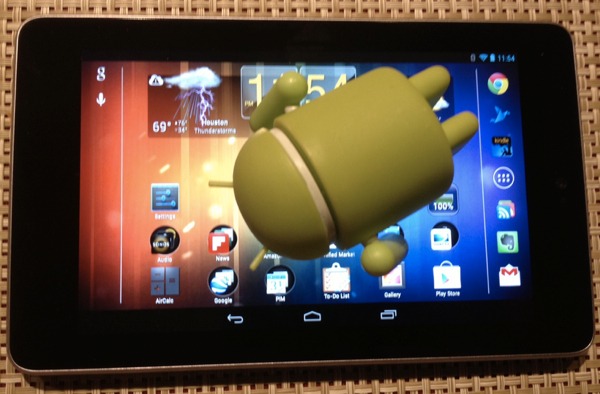Why fret about iPad numbers when there's no such thing as the Android tablet?

If you haven't seen it yet, you almost certainly will. Apple's big WWDC is approaching and, before that, its current financial disclosures. Analysts are already lamenting the "poor" iPad sales numbers. They especially like pointing out that Android tablet sales are happening at a faster clip than iPad sales. It's doom and gloom if you look around the web. The problem is, it doesn't make much sense to compare Android tablet sales to those of the iPads.
The reason for this is that the Android tablet doesn't exist. While the iPad line consists of two products, three or four at most if you lump older iPad models into the mix, the "Android tablet" is actually dozens of products from who knows how many companies.
The folks in Cupertino need to find a way to make the millions of existing iPad owners feel compelled to upgrade to the next big model coming down the road.
These tablets running some version of Android have nothing to do with one another, especially at a business level. That's not how some analysts look at it. They lump tablets from Samsung, Lenovo, and Google with all the cheap brands popular in China and other regions, to compare them to two iPads.
Samsung is unquestionably the biggest vendor of tablets running Android. Looking at the numbers from Gartner for 2013, Apple is still outselling Samsung almost two to one. That's even with a slight decline year-over-year by Apple, and after many millions of iPads sold. There is no doubt that iPads are the 800-pound gorilla in the tablet cage.
Lumping all tablets running Android together and comparing that to iPads leads to conclusions that don't really matter, like declaring that Apple needs to make drastic changes to the iPad to stem the rising tide of Android tablets. The poor iPad is doomed according to that view compared to the entire Android tablet segment.
Featured
Let's put this in perspective. If iPad is the gigantic whale in the Tablet Sea and tablets running Android are the many species of small fish occupying the same space, does it make sense to say the whale is doomed because there are too many little fish in the tank? Does the sheer number of different fish make the giant whale any less dominant in the water? No, of course it doesn't.
Should Apple make massive changes to the iPad to keep Android at bay? Not on your life; the iPad is still the biggest fish in the tank. That's why in most places you see iPads everywhere, and nary an Android tablet in sight. They may be out there but it sure depends on where you look. Not so with the iPads, which are literally everywhere.
That may be the biggest hurdle that Apple faces with the slowing of iPad sales. Many who are prospective tablet buyers already have an iPad. The folks in Cupertino need to find a way to make the millions of existing iPad owners feel compelled to upgrade to the next big model coming down the road. Ignore all the little fishes in the sea and instead improve its whale. Whales are graceful and everybody likes them, after all.
Don't get me wrong, Apple should keep an eye on the Android space. That's just good business. More importantly, it should definitely think about market saturation. Getting existing iPad owners to upgrade to the next model will go a long way to silence the analysts preaching the end of the world. Or, maybe not.
See also:
